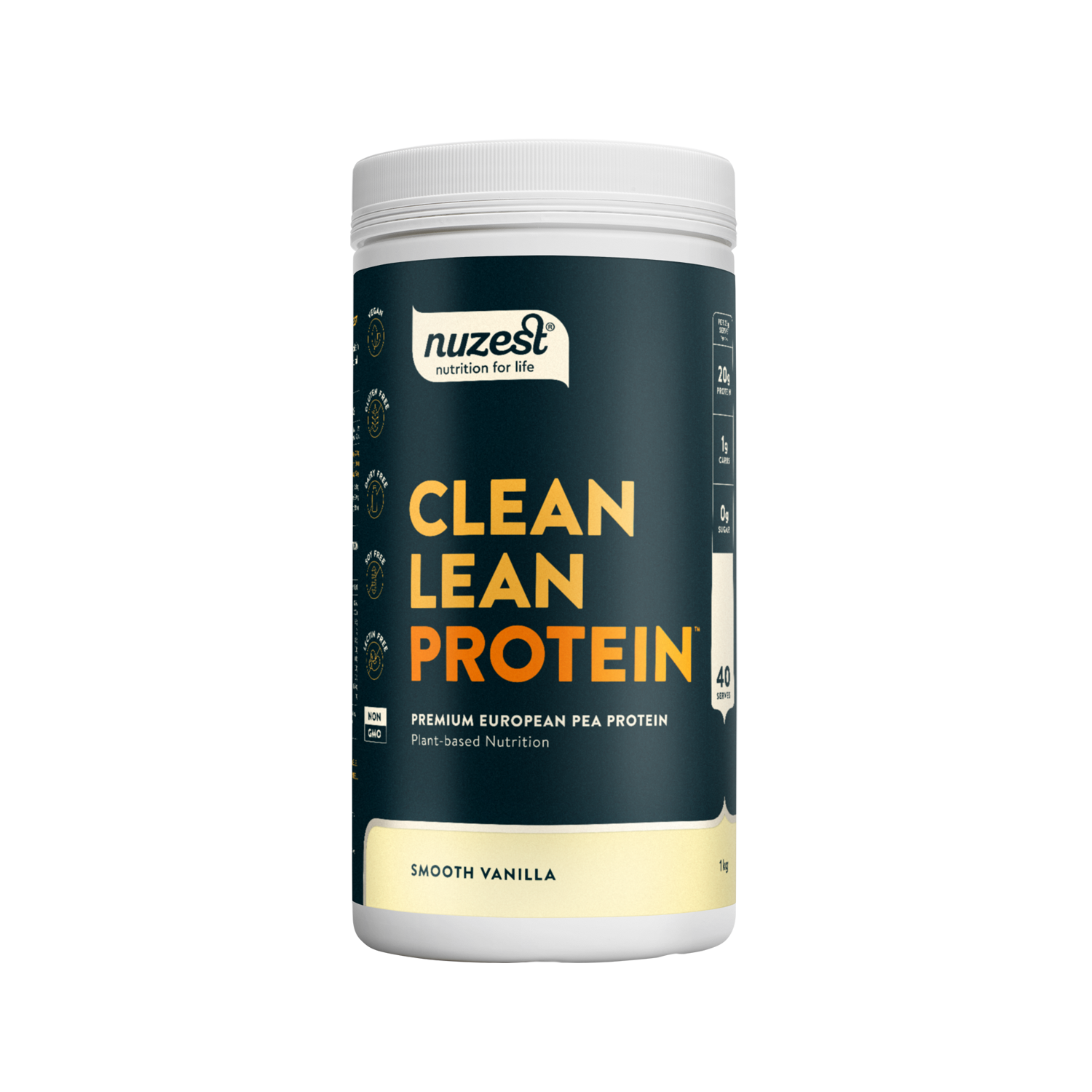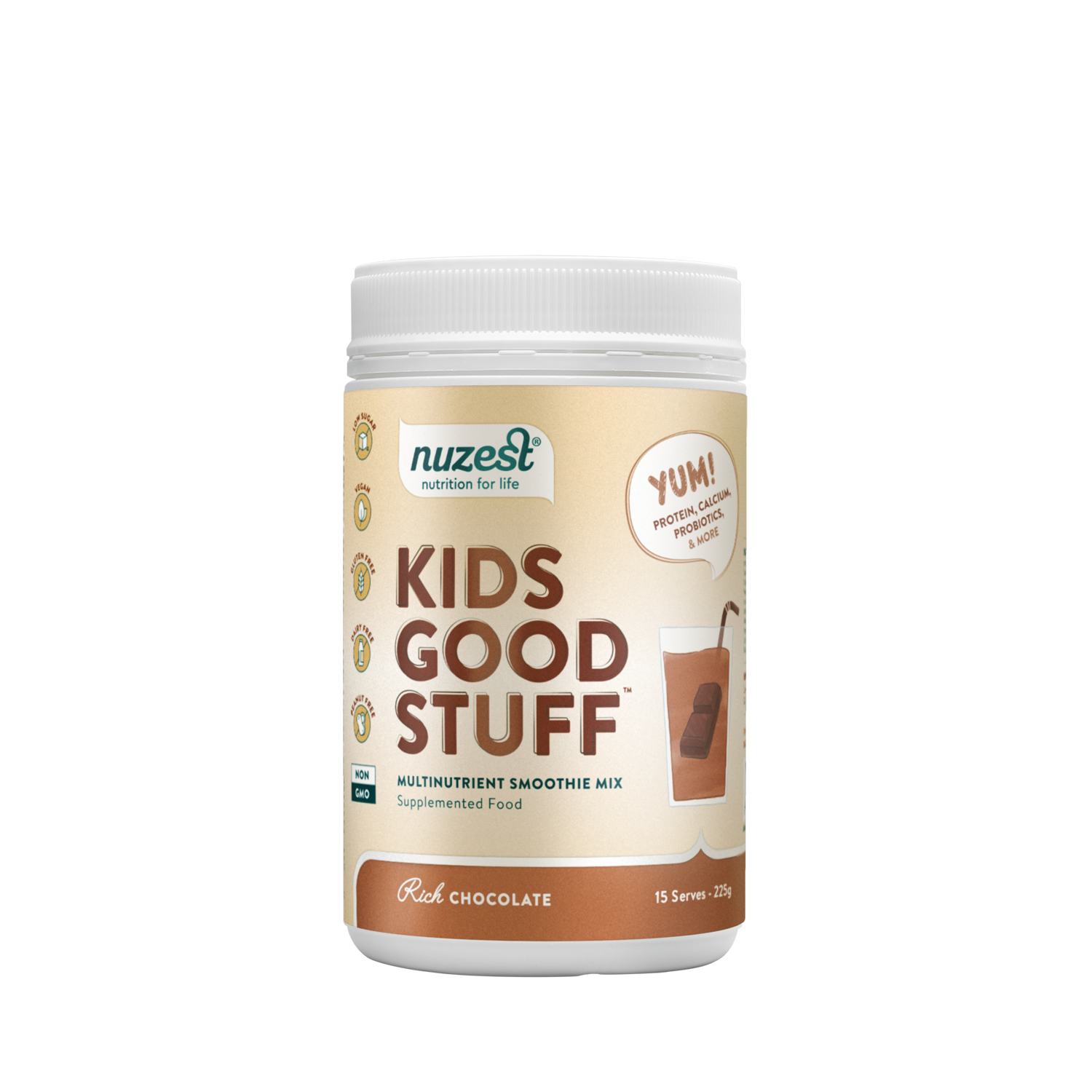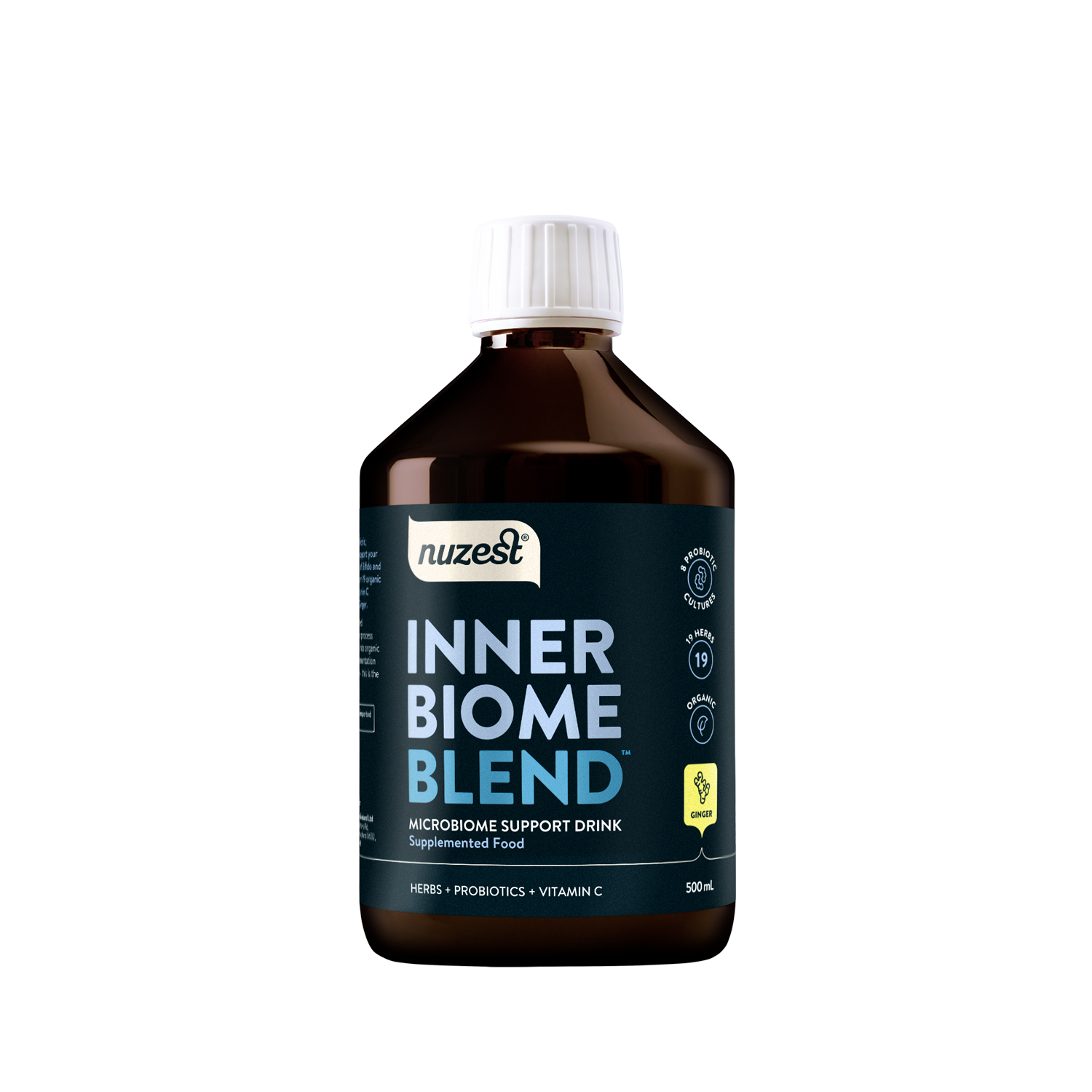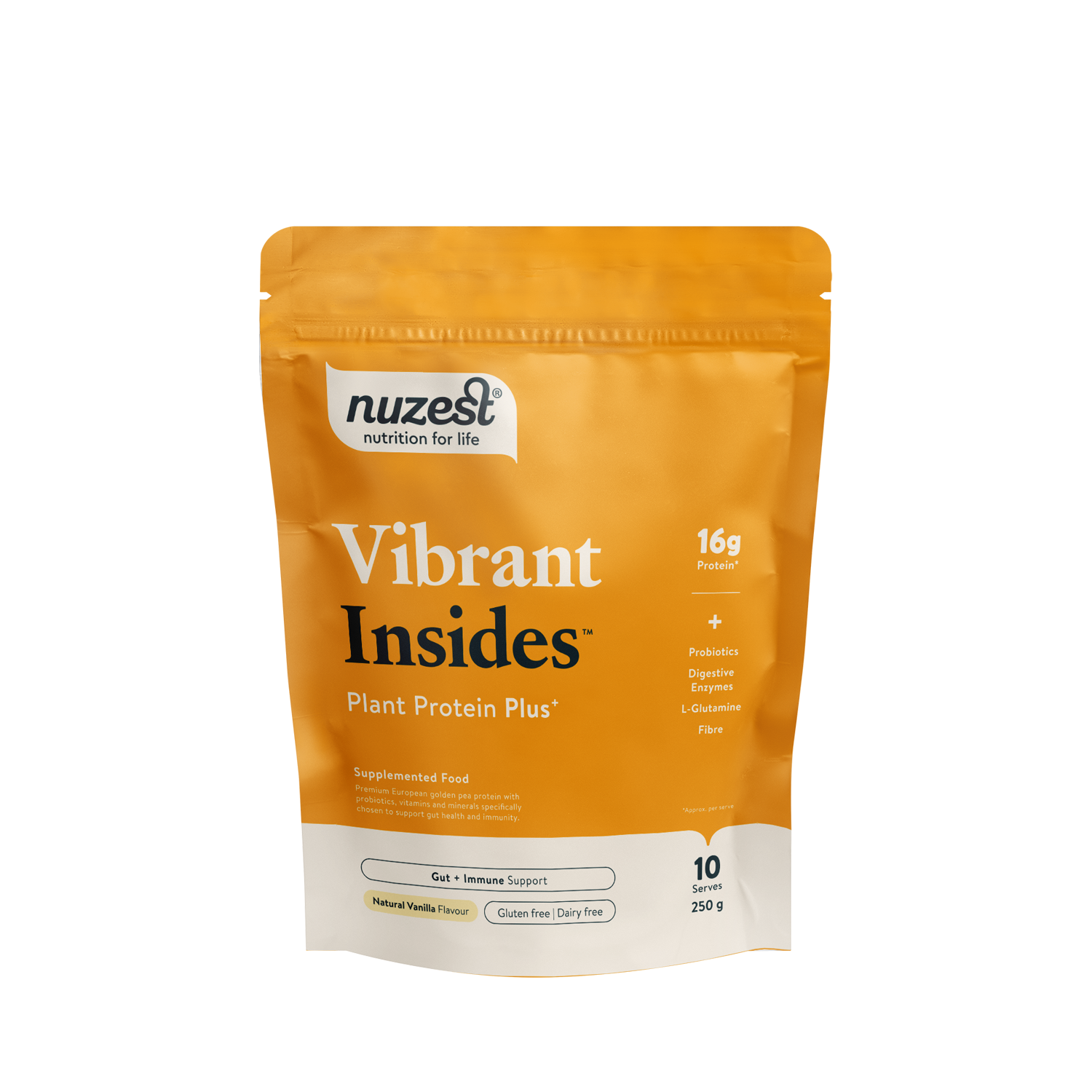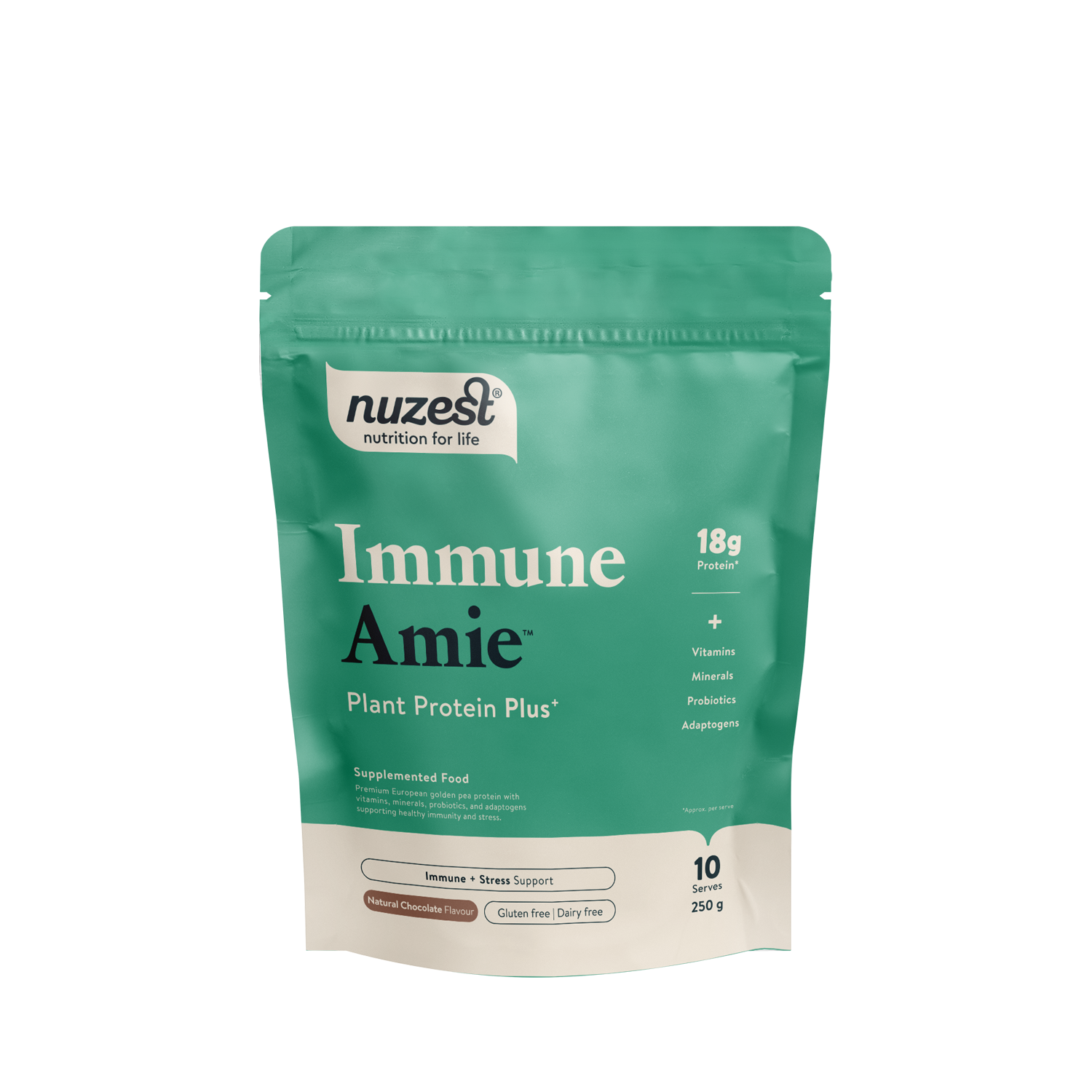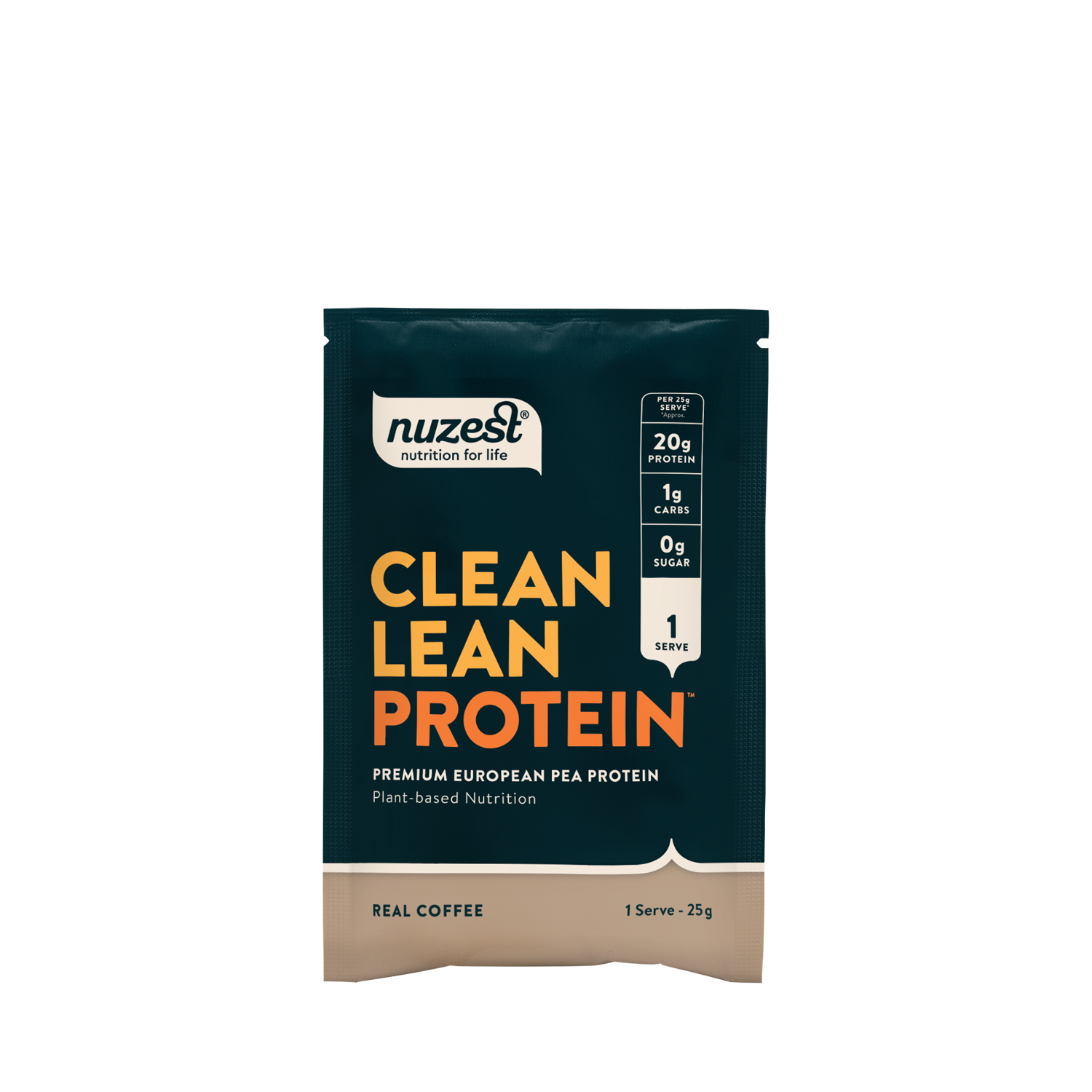Author: Megan Jones (Adv.Dip.NutMed, BHsc.NutMed)
Ageing is a natural and inevitable process, bringing with it a myriad of changes - some less welcome that others! With the average human lifespan having more than doubled in the last 150 years, and with no sign of that slowing down, what can we do to ensure we live healthier, for longer?[1] As it turns out, there is an intricate relationship between ageing, immunity, and nutrition.[2] Read on to discover how a convenient daily multi like our Good Green Vitality, containing 75+ functional ingredients, along with our Clean Lean Protein, containing more than 20g of plant-based protein per serve - can both support and positively impact the inevitable, yet natural ageing process.
When it comes to biological functions most affected by these age-related changes, our immune response tops the list.[3] Our innate immunity (natural defences we are born with) and adaptive immunity (which we develop when exposed to diseases or vaccinations) are both adversely affected as we age,[4] with poor nutritional status playing a key role in this immune decline.[5]
Key Takeaways:
- As we age, our immunity naturally declines, with a direct correlation to our nutritional status.[6]
- Our ageing immune cells coupled with inflammation significantly contribute to immune decline.[7]
- Undernutrition and immune impairments leading to disease are concerns surrounding the ageing population.[8]
- A nutritionally replete diet can help mitigate risks associated with ageing.[9]
- Inadequate protein intake in older adults contributes to increased frailty and decreased quality of life.[10]
Effects of ageing on the immune system
Our immune system is a complex collection of different cells. Sadly, ageing can adversely affect the majority of these cells to varying degrees.[11]
An accumulation of these ageing (‘senescent’) immune cells contributes not only to immune decline, but also to an increase in inflammatory processes which in turn can cause further immune dysfunction.[12],[13]
In fact, immunosenescence and inflammageing are considered key characteristics of an ageing immune system.[14]
But what does this mean?
The term ‘immunosenescence’ refers to the change in immune functions that are associated with the natural ageing process.[15]
Immunosenescence essentially slows down the body’s immune response, and is considered detrimental because it often leads to subclinical accumulation of pro-inflammatory factors - termed ‘inflammageing’.[16]
It has been reported that together, immunosenescence and inflammageing stand at the origin of most diseases of the elderly - such as infections, cancer, autoimmune disorders, and chronic inflammatory diseases. [17]
The role of nutrition in supporting immunity
Research reports that poor nutritional status may contribute to age-related immune decline. Furthermore, undernutrition amongst the elderly promotes not only immune decline but also frailty - which can result in serious immune impairments.[18]
With immune decline comes an increased risk of chronic disease development, but also of susceptibility to infectious diseases and health conditions related to changes in muscle and bone mass deterioration. These may include osteoporosis, or sarcopenia - a condition involving age-associated loss of muscle mass and function. [19]
In contrast, for those older folk with better micronutrient intake, immune decline is reported as significantly less. [20]
Research states that eating foods rich in micronutrients and containing an appropriate macronutrient balance, whilst maintaining an active lifestyle can help to mitigate risks associated with ageing, immunosenescence and inflammageing.[21] Nutrient needs in this population however, are also often affected by chronic health conditions, use of multiple medicines, and changes in body composition.[22] Therefore, following a healthy dietary pattern and making every bite count is particularly important as we age!
Top nutrients for immune support in healthy ageing
Zinc:
A zinc deficiency, common in the elderly, is linked to impaired immune function and increased risk for acquiring infection, which studies show can be rectified by zinc supplementation.[23] Dietary zinc can be found in meat, fish, oysters, dairy, eggs, and pumpkin seeds,[24] however did you know that one serve of Nuzest’s Good Green Vitality contains 15mg of dietary zinc per serve?
Vitamin E:
Vitamin E intake above recommended levels can enhance adaptive immunity. This effect is believed to contribute toward increased resistance to influenza infection and reduced incidence of upper respiratory infection in the elderly.[25] While vitamin E can be found in various nuts, seeds and vegetable oils, Nuzest’s Good Green Vitality contains 18mg of alpha-TE vitamin E per 10g serve.
Essential Fatty Acids:
Increased intake of fish like salmon or sardines, or essential fatty acids such those found in nuts and seeds (think walnuts, chia, flaxseeds) may be beneficial to inflammatory and autoimmune disorders, as well as to several age-related diseases. If you are looking to boost your intake of healthy fats, Nuzest’s Good Green Vitality contains 500mg of flaxseed powder per serve.[26]
Vitamin D:
Optimal vitamin D status has been reported as a helpful tool for tackling inflammation and ageing, through the downregulation of the inflammatory signalling cascade at a cellular level. For many of us, consistent sun exposure as a source of vitamin D is not always an option, and not always safe, so why not add an extra 800IU of vitamin D3 into your day with one easy serve of Good Green Vitality? [27]
Protein:
The importance of dietary protein cannot be underestimated in the diets of older adults - inadequate protein intake contributes to a decrease in reserve capacity, increased skin fragility, decreased immune function, poorer healing, and longer recuperation from illness.[28]
While one skinless, boneless, cooked chicken thigh contains approximately 13.5g animal protein[29], did you know that our Clean Lean Protein contains approximately 20g of highly bioavailable and sustainable golden European pea protein per serve, making a significant contribution to our daily protein needs?
While we are big proponents of food first here at Nuzest, sometimes (and especially in the modern world we live in) it is not always possible to get everything we need - and more - from diet alone. This is why we have created our multi nutrient greens powder - Good Green Vitality - designed to help fill nutritional gaps with one daily serve, and with specific forms of vitamins and minerals selected based on their maximum bioavailability and, therefore, efficacy. When combined with regular exercise and a nutrient-dense diet, consumption of Good Green Vitality and Clean Lean Protein don’t only bolster immunity but also contain micro and macro nutrients that work synergistically to attenuate the inevitable aging process, promoting overall vitality, well-being, and immunity!
References:
- https://immunityageing.biomedcentral.com/articles/10.1186/1742-4933-9-9
- https://www.ncbi.nlm.nih.gov/pmc/articles/PMC2265901/
- https://www.ncbi.nlm.nih.gov/pmc/articles/PMC8442641
- https://www.frontiersin.org/articles/10.3389/fimmu.2020.01748/full
- https://www.ncbi.nlm.nih.gov/pmc/articles/PMC7146449
- https://www.ncbi.nlm.nih.gov/pmc/articles/PMC9772031/
- https://www.ncbi.nlm.nih.gov/pmc/articles/PMC5291468/
- https://www.ncbi.nlm.nih.gov/pmc/articles/PMC4445877/
- https://pubmed.ncbi.nlm.nih.gov/35215539/
- https://www.ncbi.nlm.nih.gov/pmc/articles/PMC6165078/
- https://www.ncbi.nlm.nih.gov/pmc/articles/PMC3320807
- https://www.frontiersin.org/articles/10.3389/fphys.2020.571416/full
- https://www.sciencedirect.com/science/article/abs/pii/B9780128187319000720
- https://pubmed.ncbi.nlm.nih.gov/35159168
- https://www.ncbi.nlm.nih.gov/pmc/articles/PMC2265901
- https://pubmed.ncbi.nlm.nih.gov/34391943
- https://pubmed.ncbi.nlm.nih.gov/29375577
- https://www.ncbi.nlm.nih.gov/pmc/articles/PMC3320807/
- https://www.sciencedirect.com/science/article/abs/pii/B9780128187319000720
- https://www.ncbi.nlm.nih.gov/pmc/articles/PMC8399049/
- https://www.mdpi.com/2072-6643/12/3/622
- https://health.gov/news/202107/nutrition-we-age-healthy-eating-dietary-guidelines
- https://www.ncbi.nlm.nih.gov/pmc/articles/PMC7297178/
- https://ods.od.nih.gov/factsheets/Zinc-HealthProfessional/
- https://www.sciencedirect.com/science/article/pii/S2161831322012492
- https://www.ncbi.nlm.nih.gov/pmc/articles/PMC4030645/
- https://www.ncbi.nlm.nih.gov/pmc/articles/PMC10002864/
- https://pubmed.ncbi.nlm.nih.gov/15640517/
- https://www.healthline.com/nutrition/protein-in-chicken

